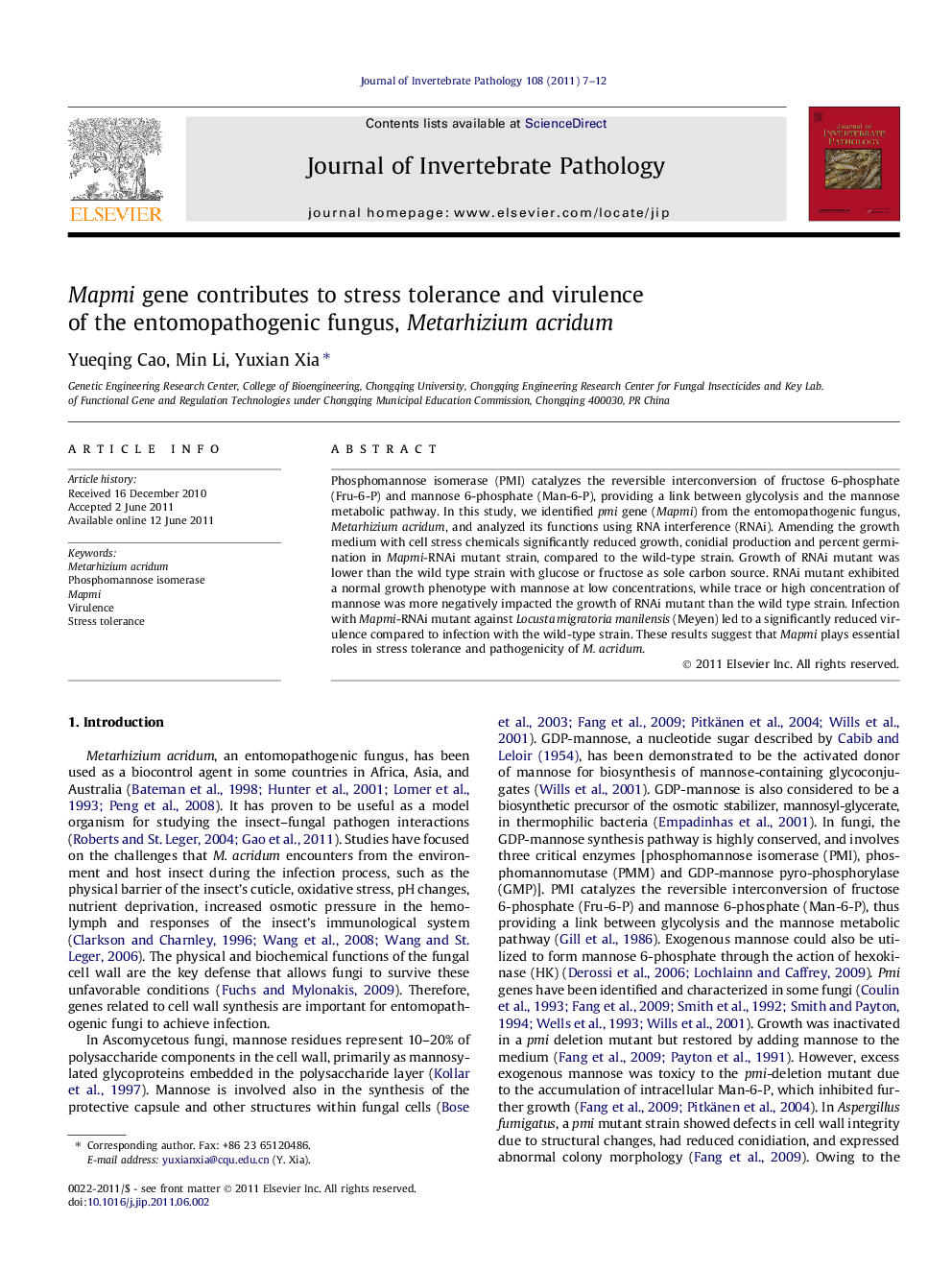| Article ID | Journal | Published Year | Pages | File Type |
|---|---|---|---|---|
| 4558148 | Journal of Invertebrate Pathology | 2011 | 6 Pages |
Phosphomannose isomerase (PMI) catalyzes the reversible interconversion of fructose 6-phosphate (Fru-6-P) and mannose 6-phosphate (Man-6-P), providing a link between glycolysis and the mannose metabolic pathway. In this study, we identified pmi gene (Mapmi) from the entomopathogenic fungus, Metarhizium acridum, and analyzed its functions using RNA interference (RNAi). Amending the growth medium with cell stress chemicals significantly reduced growth, conidial production and percent germination in Mapmi-RNAi mutant strain, compared to the wild-type strain. Growth of RNAi mutant was lower than the wild type strain with glucose or fructose as sole carbon source. RNAi mutant exhibited a normal growth phenotype with mannose at low concentrations, while trace or high concentration of mannose was more negatively impacted the growth of RNAi mutant than the wild type strain. Infection with Mapmi-RNAi mutant against Locusta migratoria manilensis (Meyen) led to a significantly reduced virulence compared to infection with the wild-type strain. These results suggest that Mapmi plays essential roles in stress tolerance and pathogenicity of M. acridum.
Grapical abstractGrowth characterization of Mapmi-RNAi and wild-type strains on medium supplemented with different carbon sources and stress chemicals.Figure optionsDownload full-size imageDownload as PowerPoint slideHighlights► Mapmi is involved cell stress tolerance and virulence. ► Mapmi-RNAi mutant was less tolerant of cell stress and excess mannose. ► Exogenous mannose could restore the growth of Mapmi-RNAi. ► The stress tolerance of Mapmi-RNAi mutant could not be rescued by exogenous mannose.
